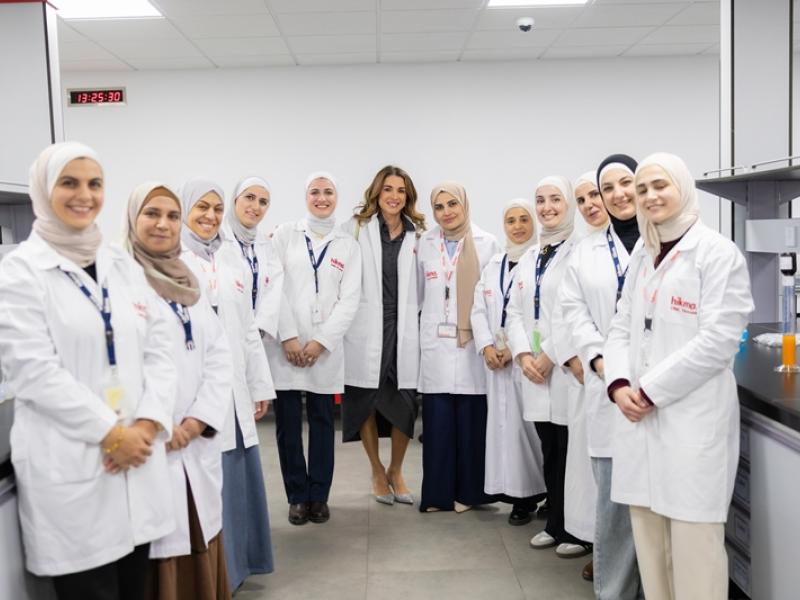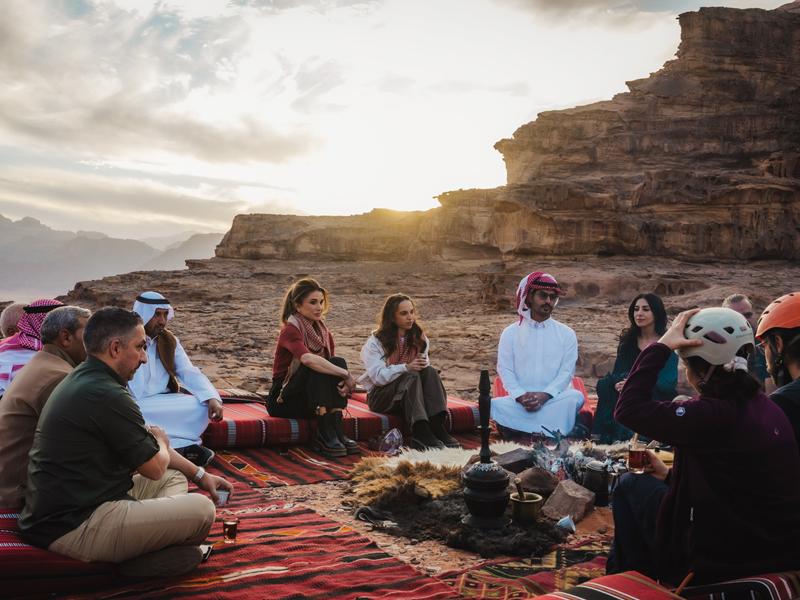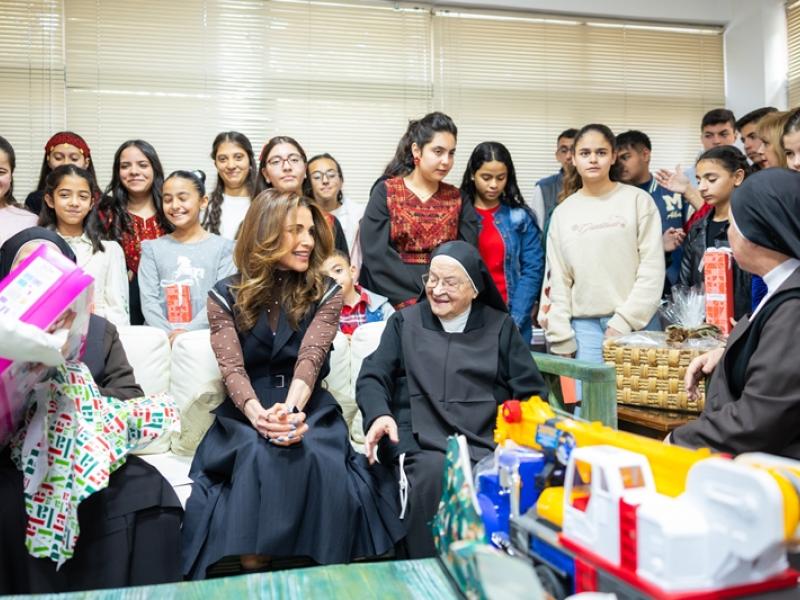(Office of Her Majesty, Press Department - Amman) Her Majesty Queen Rania Al Abdullah said globalizing human dignity is just as important as globalizing access to information, commerce, and technology- for if the former is not achieved, the latter’s potential will never be attained.”
The Queen’s remarks were articulated in an opinion piece published in the London-based Al Hayat daily on the occasion of Human Rights Day in which she stressed that “the world’s great faiths and philosophies all draw strength from the same core belief that dignity is intrinsic to humankind as a universal birthright.”
Queen Rania said Jordan was determined to reinforce the right to human dignity within its borders and promote it beyond as it intends to be a model of a democratic Arab state, in which everyone, especially women and young people, plays a vital role.
Queen Rania referred to King Abdullah’s Speech from the Throne opening 14th Jordan’s Parliament with his vision of “a society of collaboration and cooperation, built upon a solid foundation of justice, equality, equal opportunities and respect for human rights.”
“Protecting the dignity of others is in our own self-interest. In an age when borders no longer define the limits of culture and commerce, neither can they contain the enormous costs of human suffering…yet today we find our global moral conscience lagging behind our global markets…we can do better. We must close this moral lag.”
Queen Rania said 2003 Nobel Peace Prize Laureate Shirin Ebadi’s recognition demonstrates that a Muslim woman’s life’s work proves that there is no contradiction between deep religious faith on the one hand and dedication to human rights and democratic reform on the other.
In her editorial, Queen Rania said the bombing of the UN and ICRC offices in Baghdad reflects a tragic and growing trend of violence against aid workers, who should have “appropriate humanitarian space to function”
"The international community must respect aid workers impartiality and independence. Encroachments on their neutrality jeopardizes their credibility, impairing their duty to work with victims on every side of a conflict. Politicizing humanitarian relief undermines it very goal.”
“We have to make room for humanitarian space in our hearts - and awaken the part of ourselves that aches at the sight of another in pain. We cannot afford to ration compassion, reject the unfamiliar, or save our sympathy only for people who look or sound like us,”
Queen Rania noted. Queen Rania, the current president of the Arab Women's Summit, and member of the International Criminal Court’s first Board of Directors of the Victims Trust Fund, has been outspoken on the need to activate laws and international conventions to improve the living standards of war victims.
In her Speech at the 28th International Conference of the Red Cross and the Red Crescent Societies in Geneva last week Queen Rania stressed “the right to human dignity is non-negotiable”.
She said protecting human dignity, the foundation of all human rights for people wherever they were, was a message emphasized by the late King Hussein.
Jordan was the first Arab country to create a national commission for the implementation of International Humanitarian Law to give advice to the concerned authorities in order to harmonize the national law with the international treaties and conventions.
Jordan was also the first Arab country to ratify the International Criminal Court Treaty, and among the first Arab countries to sign the Ottawa Treaty, banning the use of anti-personnel landmines.


